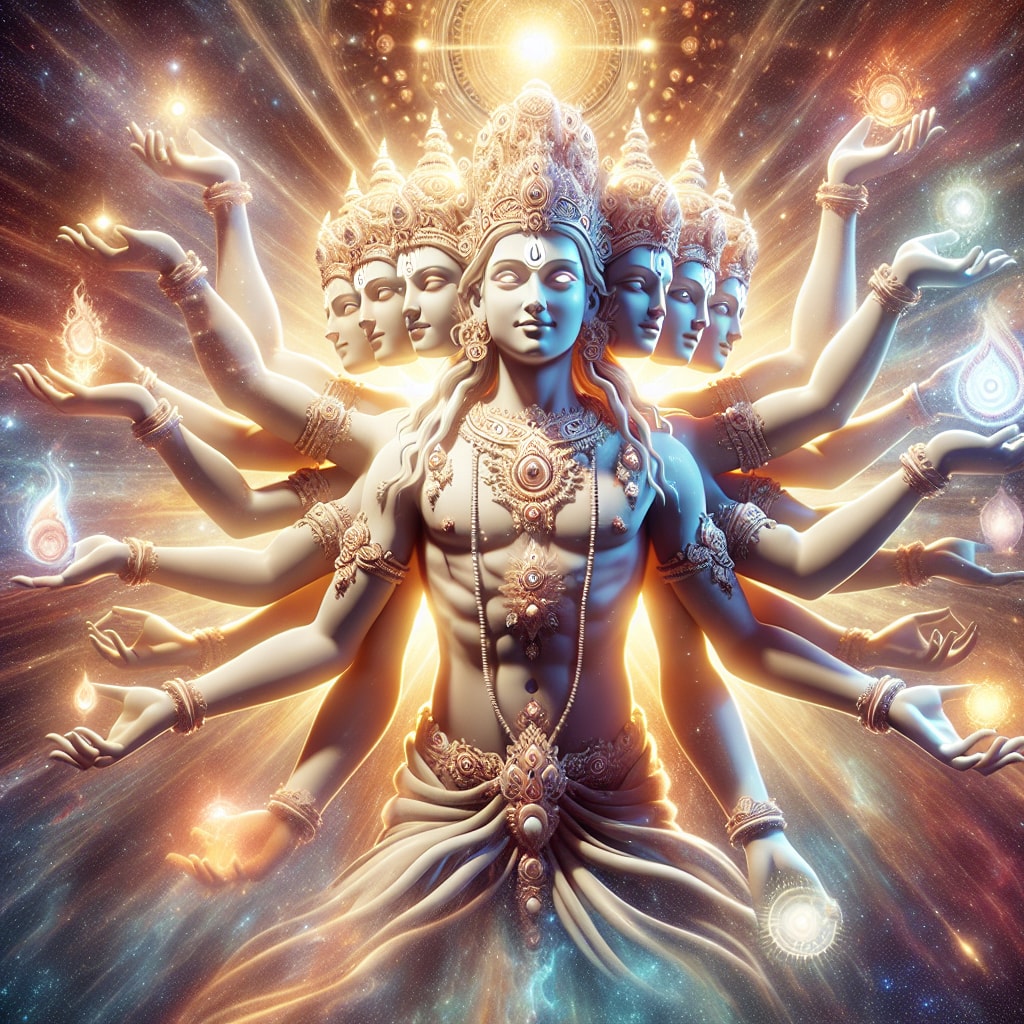The term "Purusha" is integral to several philosophical systems within Sanskrit literature, including the Mahabharata and Bhagavad Gita. In its simplest form, Purusha is referred to as the "cosmic man" or "universal principle". Yet, its significance and interpretation are varied and intricate across different texts.
In the ancient Indian scriptures known as the Vedas, specifically in the Rigveda, Purusha is seen in the Purusha Sukta as a cosmic being from whose body the universe is created. This version of Purusha pervades all existence and transcends it too, being both manifest and unmanifest.
In the Mahabharata, an epic narrative of ancient India at the center of which the Bhagavad Gita is located, the Purusha concept finds more complex articulations. Here, Purusha is identified with the supreme reality, which transcends the physical universe. It's also interpreted as the "Self" or the individual soul that's eternal, unchanging, and beyond the material world yet intricately connected to it.
In the revered text of Bhagavad Gita, the Purusha is seen in the light of the Sankhya philosophy and Krishna's teachings. Krishna identifies himself as the ultimate Purusha or Purushottama, beyond the perishable physical body (Kshara Purusha) and the immortal soul (Akshara Purusha). He signifies the Supreme Being, embracing and exceeding all creation.
Moreover, in the Gita, the Purusha is often described as the conscious principle, the observer who experiences and understands the universe. This notion of Purusha can be seen as aligning with the concept of the conscious self in the Yoga and Sankhya philosophies.
Thus, the idea of Purusha in Sanskrit literature can serve as a mirror, reflecting the profound philosophy of existence, the universe, and the individual self as parts of an interconnected, omnipresent entity. It's a shining thread woven into the richly embroidered fabric of philosophical discourse. Its interpretation may vary, yet its importance in understanding the dynamics of existence remains unaltered across various texts.

